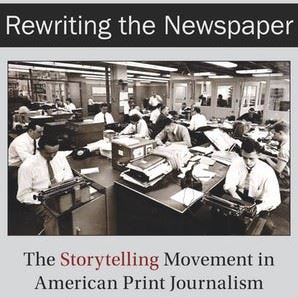 Please introduce yourself and include your connections/role with AJHA.
Please introduce yourself and include your connections/role with AJHA.
I’m Thomas Schmidt, an assistant professor at the Department of Communication at the University of California, San Diego. Prior to my academic career, I worked as a journalist for a variety of news organizations in Austria, where I’m from originally. AJHA is very dear to my heart, because its annual conference in Oklahoma City in 2015 was one of my first academic conferences. In addition, I felt particularly honored and humbled to receive honorary mentions for a best student paper at the conference in Little Rock 2017 and for the Margaret A. Blanchard Doctoral Dissertation Award in 2018, respectively.
What drew you to your topic/time period?
When I was in my twenties, I discovered American narrative journalism as I was spending a year in New York City thanks to a Fulbright fellowship. There, I for the first time read writers like Tom Wolfe, Joan Didion, and Gay Talese. Later, I studied the practice of narrative nonfiction at the University of Oregon, and I became increasingly curious about the larger context of this journalistic tradition and why it felt so different from the journalism that I grew up with in Germany, Austria, and Switzerland. So, when I began my Ph.D. studies, I just wanted to explore this question from a historical and conceptual perspective.
How did your thinking in the development of your topic start and then lead to this publication? Did it stray? Did you make any sudden and unexpected turns?
Thanks to the wonderful guidance from my mentors Lauren Kessler and Gretchen Soderlund, I had a pretty good idea where to begin (the Washington Post in the late 1960s) and where to end (at the Oregonian in the early 2000s). The tricky part was trying to find reliable archival materials because, for example, unlike the New York Times, the Washington Post didn’t have a repository for its organizational documents. I was lucky enough to get access to a special collection at the Poynter Institute (thanks to the amazing support of Roy Peter Clark), which allowed me to tell the story of the Washington Post Style section in great detail. As I was revising my dissertation to be published as a book, I spent some time at the Harry Ransom Center at UT Austin and felt incredible elation when I found documentation about the first Pulitzer Prize in Feature Writing, a discovery that greatly enriched my book. It was one of those moments when you sit in a very quiet special collections room and you just want to scream because you’ve found such a gem!
 What surprised you most about this project?
What surprised you most about this project?
From a historical perspective, I was most surprised by finding out that the evolution of narrative journalism was not just a result of a few writers in New York who just happened to be cultural trendsetters. What really propelled and sustained the emergence of narrative journalism was the interplay of individual actions in newsrooms and institutional initiatives such as writing awards, writer’s workshops, and personal networks. From a personal perspective, I was amazed to find so many primary sources stemming from personal correspondence and organizational communication. The range and quality of these materials would be impossible to find in Europe because journalists and their organizations are not that interested in keeping these kinds of records.
What did you find to be your biggest challenge in working your way to completion of your monograph?
I was in the comfortable position to graduate from my Ph.D. program with a book contract from the University of Missouri Press in hand. But my first son was just a few months old at that point and because my wife was working full time in a demanding job, I was juggling being a stay-at-home dad with finishing the book while doing some part-time postdoctoral work. That said, I think these external pressures also helped me to stay focused on substantially expanding and revising my dissertation. Chris Wilson from Boston College helped me figure out some of the more intricate writing challenges and the library at Central Oregon Community College became my second home as I spent wintry nights there writing from 8 p.m. to midnight.
What are you working on now?
My current research explores the changing role of journalistic objectivity and how it shapes the norms, values, and practices of journalists. Since I’m at UC San Diego, I’m particularly inspired to carry forward a tradition of scholars like Michael Schudson and Dan Hallin. I’m particularly interested in exploring the intersection of journalism and social justice as the Black Lives Matter movement inspired journalists of color to reflect on the systemic blind spots of practices of “objective” reporting when it comes to covering racial and ethnic issues.

